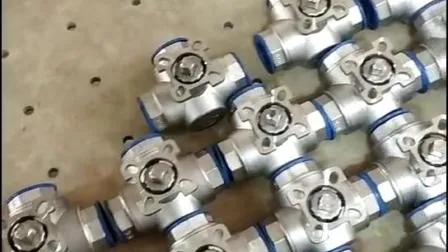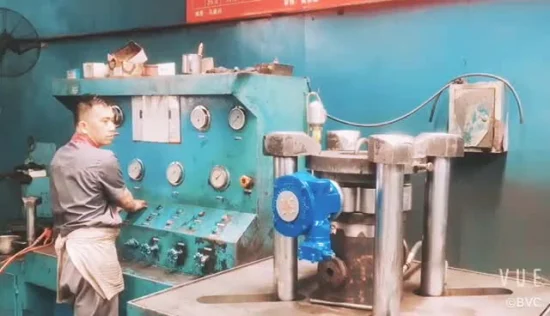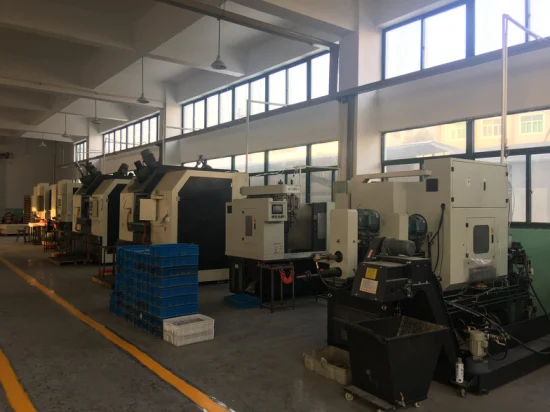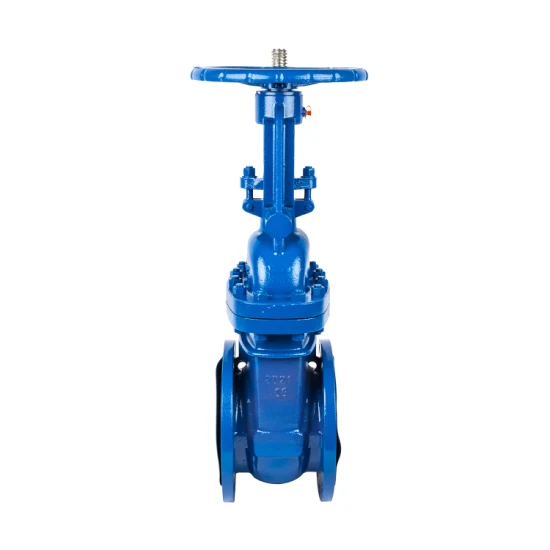Información básica
| N º de Modelo. | BWGCB105 |
| Estructura | Válvula de bola flotante |
| Tipo | Válvula de bola flotante |
| Función | Válvula de purga |
| Temperatura | Temperatura normal |
| Estándar | Estruendo, ANSI, JIS, etc. |
| Solicitud | Uso Industrial, Agua Uso Industrial, Uso Doméstico |
| Hilo | NPT Bsp BSPT DIN2999 |
| Técnica | Fundición |
| Soporte personalizado | ODM OEM |
| Medio | Agua, Petróleo, Gas |
| Temperatura de trabajo. | -20ºC ~200ºC |
| Finaliza la conexión | Socket Weld o Roscado: NPT, Bsp, BSPT, etc. |
| Presión | 150lb, 1000wog, 2000wog, Pn16, Pn64 |
| Certificado | ISO9001:2000,CE |
| Tipo de conexión general | TNP hembra |
| Paquete de transporte | Caja de cartón+ bolsa de plástico |
| Especificación | 1/4′′ - 4′′ |
| Marca comercial | ENTRAR |
| Origen | Hebei, China |
| Código hs | 8481804090 |
| Capacidad de producción | 500000 |
Descripción del Producto
Información del producto configurado
Serie útil: válvula de bola de acero inoxidable 304/304L/316/316L de puerto estándar. El sello del cuerpo y el sello del vástago son de PTFE reforzado con fibra de vidrio. Los asientos son RPTFE. Las conexiones de tubería son NPT (National Pipe Taper)/BSP con extremo roscado hembra. Rango de temperatura -20 °F a 400 °F (-28,8 °C a 204,4 °C). Clasificación de presión del cuerpo de la válvula 1,000 psi CWP Vapor saturado a 150 PSI y una clasificación de vacío de 20 micrones. Diseño de sello de vástago autocompensante. Los productos se comercializan según los Términos y condiciones estándar de Valve. Todos los productos de válvula MADE IN CHINA. El operador de la válvula es un mango manual estilo palanca de acero inoxidable con empuñadura de vinilo asegurada con una tuerca de vástago de bloqueo.
Especificación
| vendible | Sí |
| Tipo de válvula | Bidireccional, ENCENDIDO/APAGADO |
| Estilo de válvula | Válvula Twoball de dos piezas |
| Tamaño de la válvula | 1/4''-4'' |
| Material del cuerpo de la válvula | Acero inoxidable |
| Rango de temperatura de la válvula | -20 °F a 400 °F (-28,8 °C a 204,4 °C) |
| Clasificación de presión de la válvula | 1000 PSI CWP (presión de trabajo en frío), vapor saturado 150 PSI |
| Solicitud | Aplicado al sistema de tuberías de acero inoxidable, sistema de agua, sistema de petróleo, etc. |
| Finaliza la conexión | Soldadura por encastre o roscada: NPT, BSP, BSPT, etc. |

| Artículo | Designación | Material |
| 1 | Cubierta plástica | PVCPlástico |
| 2 | Manejar | SUS304 |
| 3 | Tuerca de prensaestopas | SUS304 |
| 4 | Tuerca de vástago | SUS304 |
| 5 | Arandela de resorte | SUS304 |
| 6 | Embalaje de vástago | PTFE |
| 7 | Arandela de empuje | PTFE |
| 8 | Sello del cuerpo | PTFE |
| 9 | Gorra | CF8/CF8M |
| 10 | Cuerpo | CF8/CF8M |
| 11 | Asiento | RPTFE |
| 12 | Pelota | CF8/CF8M |
| 13 | Provenir | SUS304 |
Características:1.1000PSI/PN632. Puerto reducido 3. Fundición de inversión 4. Vástago a prueba de soplado 5. Manija del dispositivo de bloqueo (opcional) 6. PED97/23/EC (CE0036) Aprobado 7. Aprobado por fundición Ad2000-W08. Rosca: ASME B1.20.1, BS21.0 , DIN2999/259, ISO 228-1, JIS B0203, ISO 7/19. Pruebas de inspección: API598, EN 12266
Información de la empresa
El oleoducto Cangzhou Bewin se encuentra en la ciudad de Cangzhou, provincia de Hebei. Nuestros productos principales son todo tipo de válvulas de bola de acero inoxidable, válvulas de globo, válvulas de compuerta, filtros, acoplamientos rápidos y accesorios. La compañía presenta el avanzado proceso de fundición de precisión a la cera perdida con sol de silicio, equipos de fundición bien equipados, máquinas CNC de alta precisión y un centro de mecanizado. dimensional y otro instrumento de prueba. Contamos con una línea de producción completa, desde el diseño de moldes hasta la fundición, el mecanizado y el tratamiento de superficies. En el aspecto técnico, tenemos una gran capacidad técnica de I + D para satisfacer las demandas de procesos especiales de los clientes, como cavidades profundas y complejas, posicionamiento preciso, etc. Actualmente, nuestros principales productos son 304, 304 L, 316, 316L, WCB y nuestra produce una variedad de fundición de precisión y procesamiento de piezas terminadas según los estándares de GB, ASTM, ANSI, BS, DIN, JIS, etc. La aplicación también es muy amplia y cubre casi toda la industria de fabricación y mecanizado de maquinaria en este campo.
Embalaje y entrega Embalaje 1. Bolsa de plástico + cajas de cartón + palé 2. Caja de cartón interior, caja/palé de madera exterior 3. Personalizado de acuerdo con los requisitos del cliente. . Transporte de grandes cantidades por mar2. Pequeña cantidad o transporte de muestras por aire3. Transporte Interior Por Tren4. Envío según los requisitos del cliente PUERTO: Puerto de Xingang, Puerto de Qingdao, Aeropuerto de Beijing
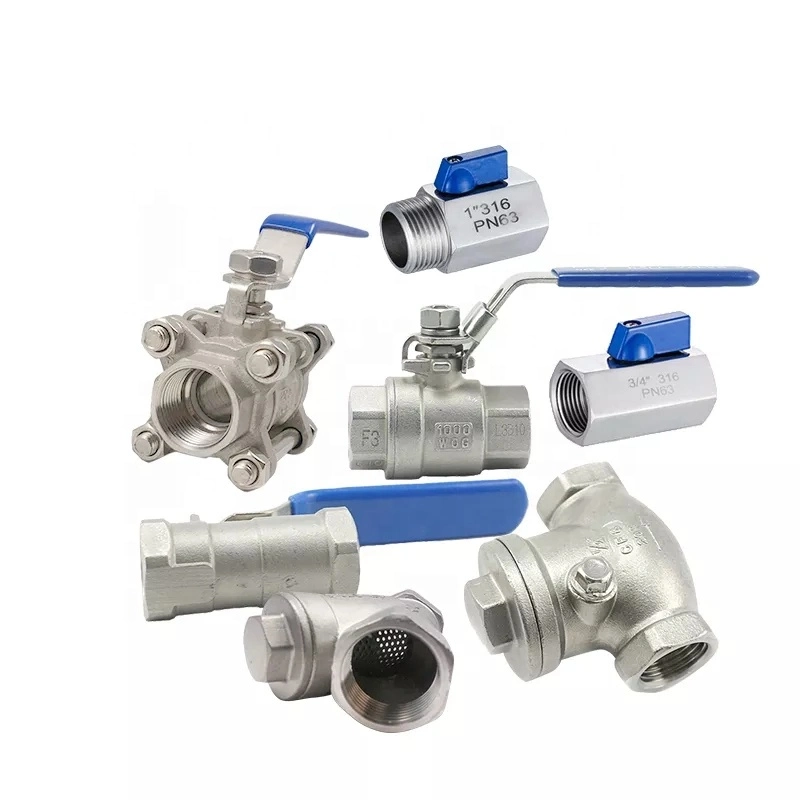
How to judge your valve is open or close? One question that plagues both homeowners and professionals alike is: "Is my valve open or closed?" If you have a butterfly or ball valve, the direction of the handle indicates whether the valve is open or closed. If you have a stop or gate valve, it is harder to tell if your valve is open or closed because there are very little to no visual cues, meaning you have to rely on the amount of resistance to determine if your valve is truly closed. Below we'll walk through four different types of valves, discussing the specifics of determining if the valve is closed or open. What Exactly is a Valve? A valve is a very simple mechanism. Valves can be found everywhere, in nature, life, and industry. Even your bathroom taps are valves. The dictionary definition provides a good starting point: noun any device for halting or controlling the flow of a liquid, gas, or other material through a passage, pipe, inlet, outlet, etc. a hinged lid or other movable part that closes or modifies the passage in such a device. Anatomy. a membranous fold or other structure that controls the flow of a fluid, as one that permits blood to flow in one direction only. to provide with a means of controlling the flow of liquid, gas, etc, by inserting a valve. verb (used with object), valved, valving. Simply put, a valve is a way of controlling the flow of liquid or any media through obstructing its pathway. Is My Ball Valve Open or Closed? Ball valves are adeptly named because of the ball that sits inside the housing unit. The ball has a hole through the center. This hole faces the flow of water when the valve is open. When the valve is closed, the solid side of the ball faces the flow, effectively blocking further forward movement of the liquid. Because of this design, ball valves are a type of shut-off valve, meaning they can only be used to stop and start flow; not regulatethe flow. Ball valves are perhaps the easiest valve to see if they are open or closed. If the handle on top is parallel to the valve, it's open. Likewise, if the handle is perpendicular to the top, the valve is closed. Common places you might find a ball valve are in irrigation and in sites where you need to control water supply from one area to another. How to Determine if Your Butterfly Valve is Open? Butterfly valves differ from all the other valves in this post because not only can they be used as a shut-off valve, they can also be used as a regulatory valve. Inside the butterfly valve is a disc that rotates as you turn the handle. Butterfly valves can regulate flow by having the disc partway open. Butterfly valves have a lever handle on the top that is similar to the ball valve. This handle both indicates if the flow is on or off, and can be used to turn the valve partway on by locking the disc in place. When the handle is parallel to the valve, it is closed, and when it is perpendicular to the valve, it is open. Butterfly valves are suited for use in garden irrigation, and they are also commonly used in space-restrictive applications. They have a slender design that makes them ideal for tight-fitting spaces. Because of the disc inside, these valves are not the best to use in high-pressure applications as there will always be something in the way partially blocking the flow. How to Know if Gate Valves are Open? Gate valves are a type of isolation (or shut off) valve that are found on pipes that require the complete turn off or on of flow. Gate valves have a knob on top that when turned raises and lowers the gate inside, hence the name. To turn on the gate valve, you turn the knob counter-clockwise, and you turn it clockwise to turn off the valve. There is no visual indicator to see if a gate valve is open or closed. It is, therefore, important to remember that when you are turning the knob you must stop when you hit resistance; to continue to try and turn the valve could potentially damage the gate, rendering your gate valve ineffective.The most common uses around the house for gate valves are for your main water shut off or, as you might see more frequently, the water spigot on the outside of your home.Is My Stop Valve Closed? The final valve on our list is a stop valve, which is another type of shut off valve. This valve looks similar to the gate valve, but it is more compact. It is also the valve that you might be the most familiar with. These valves are often used to connect appliances, like toilets and sinks, to the water supply line in your house. You twist the stop valve clockwise to turn the supply off and counter-clockwise to turn it on. Stop valves have a stem under their handle that rises and lowers as the valve is turned off and on. The stem is not visible when the stop valve is closed. Final Tip: Know Your Type of Valve At the end of the day, the most important part to knowing if a valve is open or closed is to know what type of valve you have. Ball and butterfly valves both have a lever handle on top that indicates if the valves are open or closed; whereas gate and stop valves both require the turning of a knob and have no or harder to see visual cues on if they are openor closed
